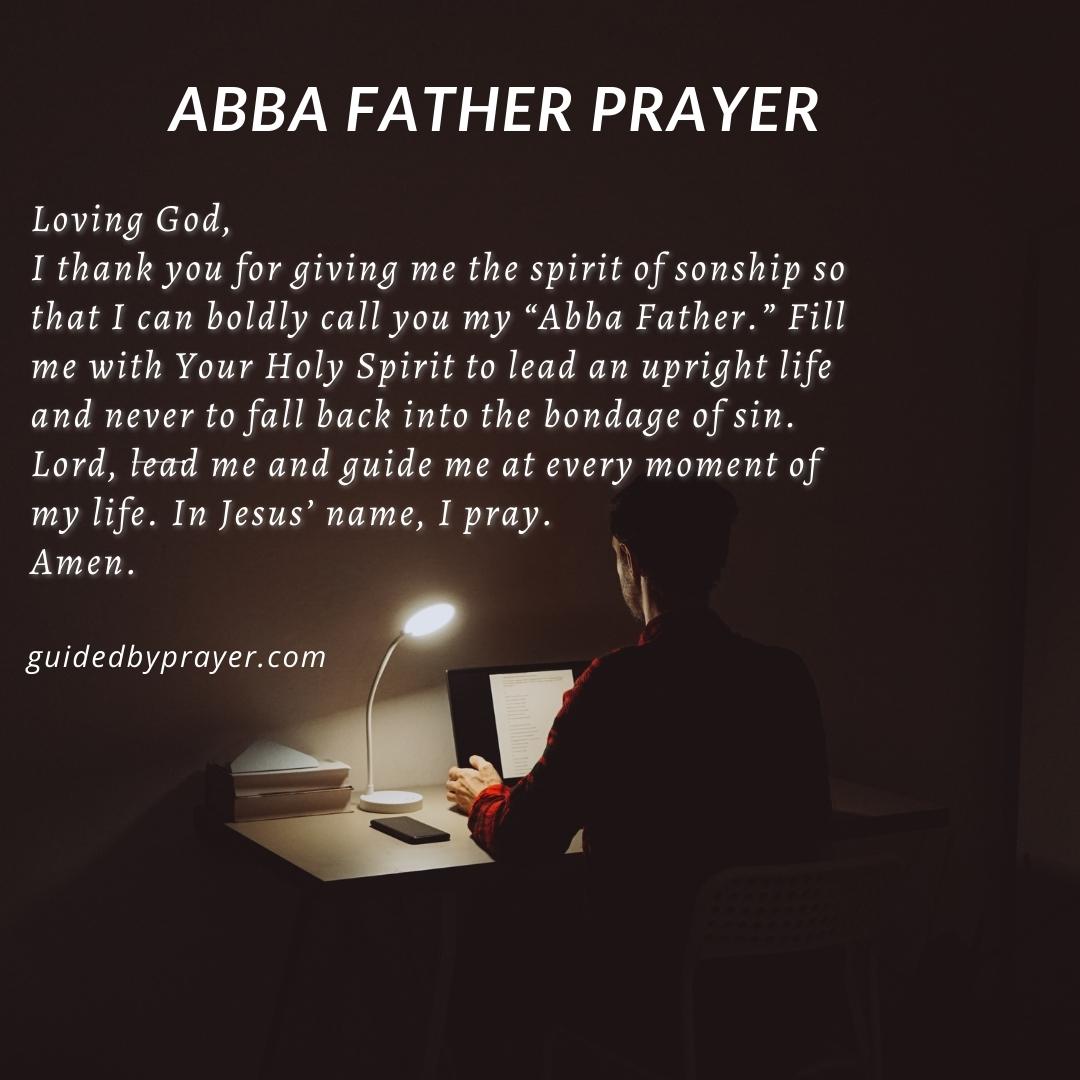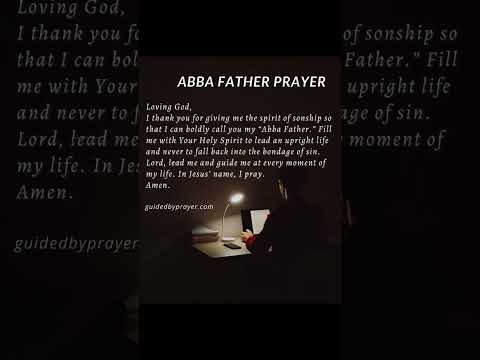The Abba Father prayer is a Christian prayer that expresses the believer’s intimate relationship with God as a loving Father. The phrase “Abba Father” comes from the Aramaic language and means “Dear Father” or “Daddy.” This prayer acknowledges God’s sovereignty and acknowledges His love and grace towards us, even when we fall short.
Historical Context
Origin: Aramaic origin, dating to early Christian era
Original Language: Aramaic (“Abba”)
Historical Usage: Early Christian worship and private devotion
Abba Father Prayer
Loving God,
I thank you for giving me the spirit of sonship
so that I can boldly call you my “Abba Father.”
Fill me with Your Holy Spirit to lead an upright life
and never to fall back into the bondage of sin.
Lord, lead me and guide me at every moment of my life.
In Jesus’ name, I pray.
Amen.
Scripture Foundation
Prayer Usage Guide
Prayer Variations
The Abba Father prayer has several variations across different Christian traditions:
Eastern Orthodox Version:
Begins with “Abba, Father of mercies” and emphasizes divine mercy and protection.
Contemporary Version:
Often includes more personal language, such as “Daddy God” or “Papa God,” reflecting modern interpretations of the Aramaic “Abba.”
Contemplative Version:
Simply repeats “Abba… Father…” as a meditation, following ancient Christian contemplative practices.
Cultural & Historical Significance
The term “Abba Father” has profoundly influenced Christian spirituality and worship practices across centuries. Its use in early Christian texts and its continued presence in modern worship demonstrates its enduring significance in Christian tradition.

